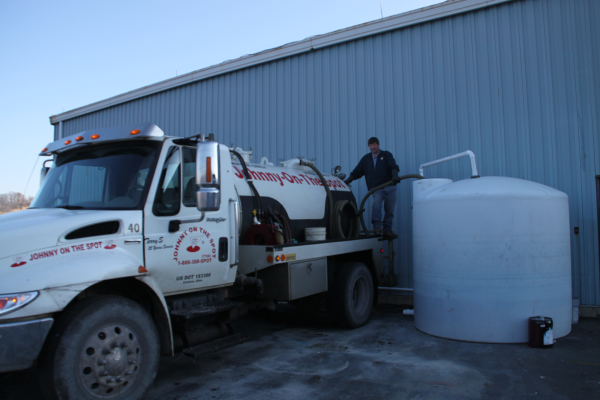If your property is in a rural area and cannot be connected to the mains sewage system, you may want to consider installing a septic tank. Septic tanks are an alternative solution for the treatment of domestic waste. They work by collecting and decomposing sewage. Inside the tank, bacteria breaks down sewage in a process called anaerobic digestion. Solids that cannot break down are retained in the tank and the rest of the effluent is released in to the soil. The soil that is used to collect the wastewater is called the percolation area.

Locating Your Septic Tank
Youlr septic tank is identifable by the location of it’s lid. The septic tank lid is usually located near the side or back of your dwelling in the grass or the gravel. If you think your septic tank lid might be overgrown with vegetation, you can call a domestic wastewater treatment company and they will be able to probe the ground to find it.
Registration
It is a legal requirement in Ireland that all septic tanks are registered with your local authority. The registration fee is EUR50. If you fail to register your septic tank, you will be liable to pay a fine. Unregistered septic tanks can be tracked down by the environmental protection agency using advanced computer mapping systems.
Inspection
Following recent legislation, all septic tanks in Ireland must undergo an inspection. The inspection is free of charage and it is carried out with the aim of identifing any domestic wastewater that might be contaminating the drinking water in your area. There are four possible outcomes to an inspection: no action is required; you need to service the septic tank; you need to replace the septic tank; and/or you need to replace your percolation area.
Servicing Your Septic Tank
Certain solids cannot break down with anaerobic digestion. As they build up in the tank, the tank loses its efficiency. Serving your tank removes all of these solids. During a service, the wastewater specialist will also check that the liquid is at the proper level, that there is no effluent being discharged to the surface, and that the tank and its components are in good working condition. It is recommended that you have your septic tank serviced every two years to five years.
Warning Signs
If you notice any surface water build-ups (particularly black or grey water) in certain areas in your garden, this may be a sign that your septic system is faulty. You should also watch out for unusual sounds coming from your plumbing or unpleasant odours. If you notice any of these warning signs, contact a domestic wastewater treatment specialist immediately because your tank may need repair or replacment.
Grants
Following an inspection, your septic tank could be deemed in need of repair or replacement. If this is the case, you may be eligible for a grant of up to EUR4000.
This article was written by Jenna Crotty who recommends www.enviroservices.ie for domestic wastewater treatment services.
